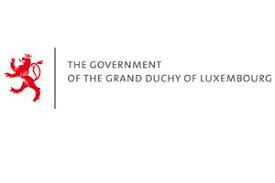En français ICI En español AQUI
Août 2022 August 2022 Agosto 2022
|
LATEST FROM PEFA
|
|
|
From the Desk of the Head of PEFA Secretariat Summer is the best time for holidays and travel around the world. The PEFA Secretariat hopes you are enjoying the summer break with families and friends. In this video, the Head of PEFA Secretariat, Srinivas Gurazada, invites you to spare a few minutes to read the latest news from PEFA, including recent events and publications, published reports, highlighted videos and external PFM publications. |
|
|
Launch of the PEFA 2022 Global Report on PFM The PEFA Secretariat launched the PEFA 2022 Global Report on PFM during the Global Webinar "Crisis Budgeting: PFM during difficult times and beyond", organized on June 29th, 2022. The Report highlights key developments in PFM over time and across countries and discusses the significant challenges that the COVID-19 pandemic has created for sustaining PFM performance. It includes a featured overview of crisis budgeting tools and trends and three case studies. |
|
|
Reflecting on the PEFA 2022 Global Report on Public Financial Management This blog published on the Governance for Development Site by Ed Olowo-Okere, Global Director, Governance Global Practice at the World Bank, highlights the importance of PEFA’s Global Report and identifies six key areas where PFM performance remains at the basic level or below, indicating the need for urgent action. |
|
|
This virtual event was jointly organized by the PEFA Secretariat and the World Bank’s Accelerate Equality Campaign on July 13th 2022. Information on the event and presenters bios may be found on the Event Webpage. The key messages, shared materials and video recording have been published in Key Messages from the Event "Who Benefits from Public Spending. |
|
|
PEFA Training in English! Formation PEFA en français! October 3-4, Paris, France The PEFA Secretariat in partnership with Agence Française de Développement will deliver PEFA training on October 3 and 4, 2022 in Paris, France. Find the expression of interest details here En partenariat avec l’Agence Française de Développement, pour la première fois depuis le debut de la pandémie, le Secrétariat PEFA organise une formation PEFA en présentiel ouverte à tous à Paris, France. Exprimez votre intérêt ici |
|
|
SDG Indicator 16.6.1 highlights how budgets have been affected by the COVID-19 pandemic An Article SDG indicator 16.6.1 speaks how budgets are affected by COVID-19 pandemic was prepared by the PEFA Secretariat as part of the UN’s annual SDG initiative on the collection of data on SDG indicator 16.6.1 "Primary governments expenditure as a proportion of its originally approved budget”. The article can be found on page 11 of the UN SDG Extended Report 2022. |
|
|
PEFA Summer Intern Keona Archie: the Youngest Member of the World Bank’s Governance Global Practice The Secretariat welcomed Keona Archie, summer intern on the PEFA team, who will be sharing her experience on the interns’ selection process and the tasks she is involved during the summer internship
|
|
|
RECENTLY PUBLISHED PEFA REPORTS
|
|||||||||
|
|
|
PFM GLOBALLY
|
||||||||||||||
|
|
|
|
||||||||||||





